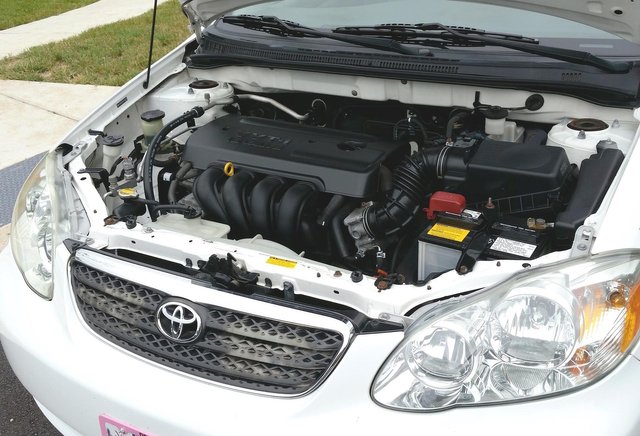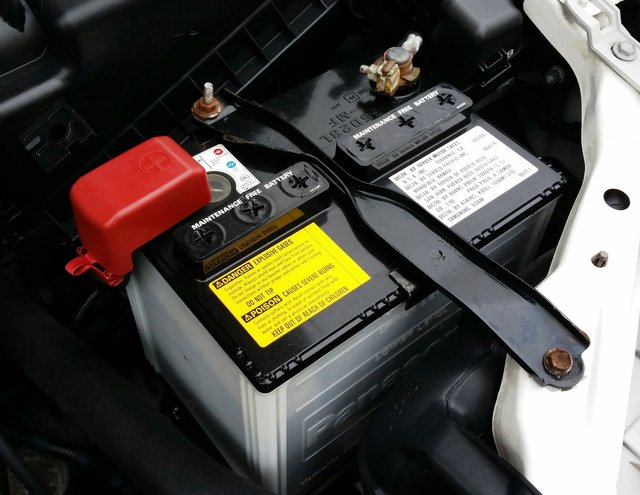Car batteries are perhaps one of the components or products that are most frequently taken for granted in a car. However, your car's computer is in it. Your car won't move if the battery is dead or flat.
My partner's automobile had been standing for some time while it had an engine overhaul and other minor repairs or replacements.
We eventually got it back on the road, but by the time we got to the point where we could start his car with a new engine, he had just purchased a brand-new battery.
When the time came to start his car, we installed the "new" battery only to discover that it was totally dead. Upon being questioned by his technician about where he stored it, my husband said, "Right here on the garage floor."
Who would have guessed that was such a simple mistake? The cold concrete floor drained the battery as Bella Swan drew her first blood when she changed into a vampire in Twilight since we had not set it on a board, box, or anything else.
Fortunately, we were able to charge it for a few days, but we won't do that again. The first thing you need to understand about a disconnected automobile battery is therefore this.
This brings up some more pertinent information that you should be aware of before handling a car battery.
Some very important information concerning automobile batteries is shared by the staff at Battery Centre, a specialized battery installation network with more than 120 stores in South Africa.
Eventually, every automobile battery has to be changed, whether it's because it's nearing the end of its useful life or because the lights or radio have been left on too long.
Jason Ravenscroft, the franchise manager for Battery Centre, stated: "A decent car, bike, or truck battery may last more than five years if it is properly specified, installed, and maintained.
Numerous factors affect the battery life of a car, and our customer data shows that around 30% of automobiles require a new battery each year.
- Locate a specialist
"While flat and malfunctioning batteries are inconvenient, many drivers may be tempted to change them themselves. However, touching a battery has risks.
"You run the danger of serious harm if you don't have the necessary tools, professional expertise, or adhere to the correct safety practices while replacing a dead battery," Ravenscroft continued.
Battery handling poses safety and health issues.
- Explosions and fires
Batteries may contain dangerous hydrogen gas, which might catch fire from sparks from short circuits created by spanners or improperly connected jumper cables, matches, cigarette lighters, or other sources.
He asserted that even a little spark may result in a fire or explosion.
Therefore, when your automobile needs maintenance, it's equally vital that your battery be unplugged.
- Serious damage
Each and every battery contains sulfuric acid, which can result in burns, rashes, and blindness. The vapors might injure your lungs and mucous membranes if they are inhaled.
- Battery weight damage
Some batteries are heavy, thus the right handling tools must be used while lifting them. Hand-lifting them may result in spine damage or muscular strain.
- Unskilled replacements can harm the vehicle
While changing a battery in a typical automobile may be simple, doing it in a vehicle equipped with Start/Stop technology can be challenging, especially if the battery isn't located under the hood.
In a car with Start/Stop technology, replacing a battery can require up to 28 steps, according to Ravenscroft.
Incorrect battery installation may result in data loss, display errors, and faults in


the electrical system. Specialists at the Battery Centre advise that Start/Stop automobiles should only be equipped with batteries that have been vetted by the car's manufacturer and satisfy the vehicle's specifications.
Battery acid spills might result in environmental degradation, according to Ravenscroft, in addition to the hazards to a person or vehicle when batteries are not handled appropriately.
Carefully handle the batteries in your automobile.
Ravenscroft advised that all automobile batteries, whether working or not, should be disposed of properly since they contain hazardous substances.
In order to prevent batteries from ending up in landfills or trash cans and to guarantee that the lead and plastic in them are recycled, he advised drivers to drop their batteries off at a reputable battery expert.